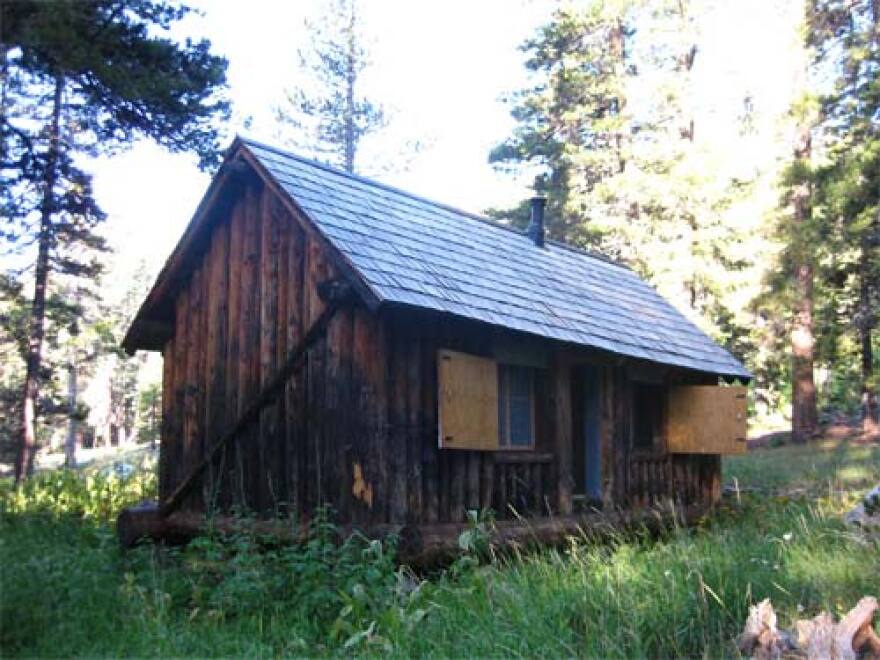With the permanent closing of the Cape Cod Sea Camps in Brewster this year, the opportunities for overnight camping experiences on the Cape has been further diminished. My sole experience as a summer camper was perhaps not typical, but it left a lasting impression.
It was July of 1953. I remember the year because that was when 3-D comics first came out. The place was Camp Shadowbrook, an evangelical boys’ camp in Pennsylvania’s Pocono Mountains. I had won a week’s stay there for memorizing all the Bible verses in a contest held by our local Bible Club. What made it even more special was that my best friend, Jimmy Maitland, tied with me so that we both got to go together.
When Jimmy’s father dropped us off at the camp, the scene was less than imposing. Several ramshackle buildings were spread out over a bare grassy plain. There was no brook, only a large, above-ground swimming pool filled with slimy, unhealthy-looking water. Jimmy and I stayed in a plain wooden cabin with eight other boys and our college-age counselor. We must have engaged in the usual camp activities, but mostly I remember weaving plastic boondoggles and drinking copious amounts of “bug juice” (a.k.a. Kool-Aid). In the evenings there was some hymn-singing and discussion of Bible verses, but the religious element was pretty light.
All in all, the experience was fairly boring and unmemorable – until, that is, the fourth day of our stay there. After lunch we all went back to our cabin for naptime, but after ten minutes or so our counselor – I’ll call him “Doug” - gathered us all together and in a conspiratorial whisper told us that we were going to “raid” one of the cabins. The campers of that cabin were off on a day trip, so we were assured that “the coast was clear.”
We had no idea what our counselor expected of us, but it promised some excitement, and so we all followed him. When we reached the empty cabin, Doug directed us to take the mattresses off the bunk beds and stack them in a pile outside. Then – and we could hardly believe our eyes – Doug pulled out a cigarette lighter and tried to set the mattresses on fire! He didn’t succeed, but at that point we knew we had gotten into something over our heads and we raced back to our cabin.
Once there, Doug said we should expect to “be attacked” by the boys in revenge for our assault on their cabin and that we needed to be “prepared.” We had no idea how or what we should be prepared for, but there was a growing sense of excitement that I had never before experienced. On one hand it was frightening, but there was also an undeniable thrill of being part of an escalating drama.
We hunkered down in our bunks and in a short while we saw the campers of the violated cabin marching in single file down the hill toward us, led by their counselor. We waited, eagerly, for revenge to be enacted upon us.
But it wasn’t. Instead, when they reached our cabin, the boys stood in a line outside while their counselor recited several Bible verses on the theme of forgiveness, including “turning the other cheek,” and “Forgive them, Father, for they know not what they do.” When he finished, they all turned around and marched back up to their cabin.
And that was it. We should have experienced relief, and maybe we did, but there was also an even stronger sense of disappointment mixed with guilt. We deserved their revenge and they had robbed us of it. We didn’t want them to turn the other cheek. We wanted them to slap our cheeks. Instead we were left with the sour taste of unfulfilled retribution. I don’t know what happened to Doug, but I’m pretty sure he wasn’t invited back the next year. And on some level the incident must have affected me physically, for I was sick the next day, and when Jimmy’s father picked us up at the end of the week, he took one look at me and said, “For God’s sake, Bobby, what have they done to you?”
Still, I learned from that experience one of life’s most difficult lessons, namely, that while undeserved retribution can make you feel bad, the lack of deserved retribution can make you feel even worse.







